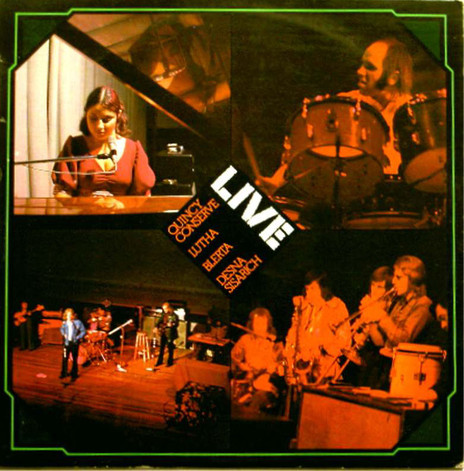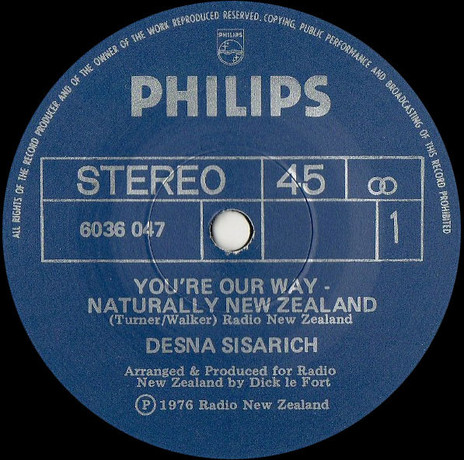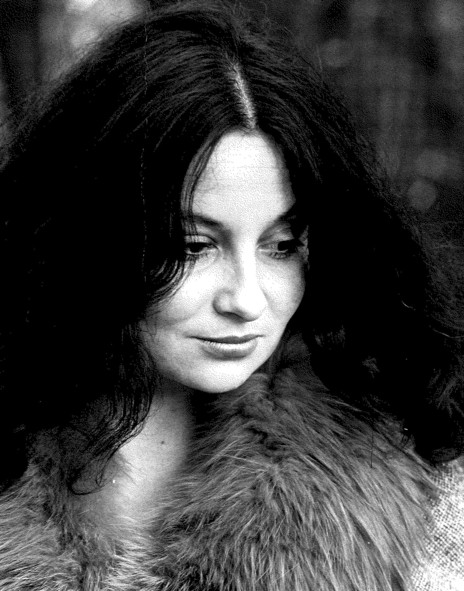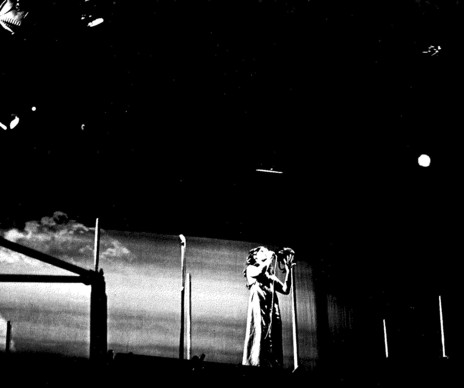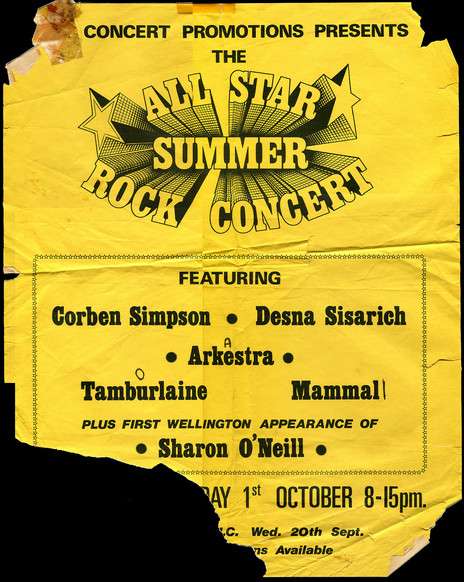At school, Desna would rather wash floors than have to endure the torture of appearing in school musical productions. Shyness and a general reluctance to sing or play her guitar or the piano in a formal setting (although she would cheerfully play and sing to friends) saw that she never was one to hog the spotlight, and she preferred to keep her private life just that.
The entertainment scene in provincial New Plymouth was remarkably buoyant in the early 1960s, and there were several popular dance bands making the weekly rounds of the Taranaki circuit of halls and dance venues. Top among the local attractions were Colin King’s band and The Nitelites, who performed regularly at the Star Gym in Westown. Their featured singer was Lew Pryme, but Robert Ruakere and Buster Walden also sang with them from time to time.
Desna was persuaded to enter a song contest and subsequently won the pop song section at the Auckland Easter Show.
In April 1964, while visiting family in Auckland, Desna was persuaded to enter a song contest and subsequently won the pop song section at the Auckland Easter Show. So when Lew departed to become a journalist, Desna became the band’s female vocalist and appeared with them at their regular Saturday night gigs at The Queens Hall. The band’s roadie for a time was Keith “Midge” Marsden, and the bass guitarist later in the 1960s was Bruce Lynch. Midge became a pop star with Bari and The Breakaways before veering away towards blues with The Country Flyers and then in his own right as a blues performer. Bruce’s career included touring with Cat Stevens and he married ex-Chick, Suzanne Donaldson, who was later to record a cover of one of Desna’s songs, ‘Thought He Was A Friend Of Mine’.
Desna gained a loyal fan base in her home town, playing a variety of band and solo gigs, accompanying herself on her guitar or (if one was available and playable) piano. She recorded and broadcast a number of radio programmes produced by Cliff Walker on the local radio station, again either backing herself on guitar or on many occasions being accompanied by local jazz musicians, The Norm Cumming Trio, with Norm on piano, Galvin Edser on bass and Bill Hartigan on drums. She also performed on the famous Bowl of Brooklands concerts for the annual Festival of the Pines.
For several months, she juggled her day gig as a reporter for the Transport Licensing Authority with managing to regularly fly from New Plymouth to Wellington to record jingles and perform on TV and in concerts. In July and August 1968 she appeared on Studio One.
Commuting was a drag, so Desna decided to look for a regular job in the capital city and make the move a permanent one. Having found a job at Victoria University she was able to build on the demand for her as a session singer and voiceover artist. Recording sessions were often scheduled for evenings, which frequently meant early morning finishes. She was involved in studio collaborations with singers Steve Gilpin (Mi-Sex), Corben Simpson (BLERTA and solo), Anna Leah and Beaver. Between them, they sang on numerous backing tracks for other artists as well as dozens of TV and radio commercials.
Clive Cockburn, formerly of The Avengers and by then developing his composing and arranging interests, cast Desna in his seminal production, Jennifer, New Zealand’s first full-scale rock opera. She continued to make appearances on the then ubiquitous TV talent programmes – often the only way to gain wider exposure other than touring. Most often, she and others who appeared were required to perform songs written by aspiring songwriters, but in an effort to promote her own material, she also appeared on the then equivalent of today’s X-Factor TV show, Studio One New Faces.
She later commented that, due to her music charts being somewhat “out of the ordinary”, the show’s musical director/ arranger would often arbitrarily change or simplify her chords, change the song’s key or tempo, or leave out sections so that when she arrived to sing over the now pre-recorded backing track, she often couldn’t recognise what she was hearing as her own composition.
Signed to HMV, the company released her first single, ‘Thought He Was A Friend Of Mine’, with Bruno Lawrence on drums, Mike Le Petit on keys and “probably” Corben Simpson on bass. She stopped recording for HMV when they released her next single, ‘Some Time In The Morning’ with not only the same cut on both sides of the disc, but the title of the song misprinted (“Something In the Morning”) on the label, and refused to make the necessary changes. Her only other single release was on the Ode label, 'Take A Life' b/w 'Lay My Weary Head'. She appears on the 1972 HMV LP recorded live in the Christchurch Town Hall with Quincy Conserve, Lutha and BLERTA, singing three songs despite the ravages of a severe bout of flu.
Desna also toured the country with Kenny Rogers and The First Edition and performed in all the main centres sharing the support slot with Nash Chase. By the early 1970s, she and a group of friends became involved with running Ziggy's, a club located in the old Downtown Club premises on Wellington’s waterfront.
Although her recordings and compositions tend to emphasise her softer vocal style, there were occasions when, for example, she jammed with bands at Ziggy's, where her “rock chick” was unleashed and she showed just how strong that voice could be. Corben Simpson recorded his version of her song ‘Take My Life’ on his second album and Suzanne covered ‘Thought He Was A Friend Of Mine’ on her 1972 album, Suzanne – Sunshine Through A Prism – The Best Of Suzanne.
Desna’s last release was a promotional song for the country – ‘You’re Our Way, Naturally New Zealand’. Her last TV appearance was in 1978’s Song For The Pacific, broadcast from the Christchurch Town Hall, singing her own song, ‘Sometimes, You Just Can’t Win’. The original, funky arrangement of the song scored by Rodger Fox proved a tad too trying for the live orchestra on the night, but it certainly showed a different side of Desna’s writing style.
No longer particularly interested in performing music, at least not live, Desna now pursues other interests less demanding of her time and energy: “I’d quite like the luxury of being able to re-cut some of my songs in a proper studio, with all the advantages modern technology can bring, but really – that was a different life, and long ago.”
